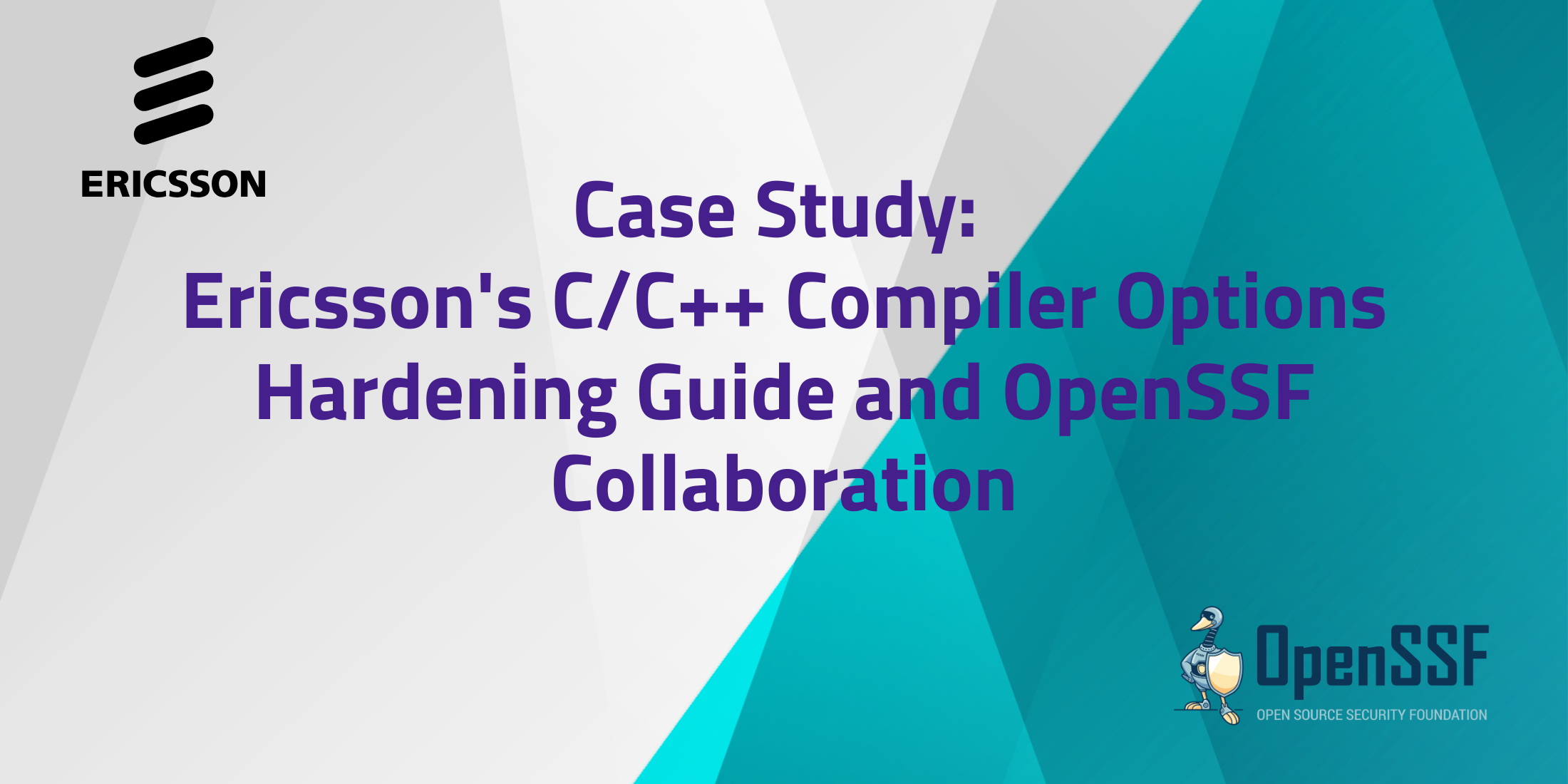
Ericsson, a global leader in telecommunications and networking, has been deeply engaged in open source and software security for over a decade. Through its Open Source Program Office (OSPO), Ericsson coordinates its participation across multiple foundations and initiatives, including the Open Source Security Foundation (OpenSSF). This case study highlights Ericsson’s collaboration with the OpenSSF, with a specific focus on their C/C++ Compiler Option Hardening Guide, which has served as both an internal resource and a community contribution.
Problem
C++ remains a foundational language in many critical systems, but it’s notoriously difficult to use securely. Given the massive volume of existing C and C++ code underpinning today’s infrastructure, many organizations today face a familiar dilemma: how to improve the security of these systems without the unrealistic burden of rewriting everything in a memory-safe programming language. The team recognized the need for a pragmatic solution that could strengthen existing infrastructure.
Solution
Ericsson, together with partners found through its engagement in the OpenSSF, developed and released the C/C++ Compiler Option Hardening Guide as a practical approach to increasing software security through better compiler configurations. The guide maps out various hardening flags and compiler options, analyzing their implications on performance and security. Originally drafted by Ericsson’s product security team, the initial guide was donated to the OpenSSF and is now jointly developed in the Best Practices Working Group of the OpenSSF.
Open sourcing the guide proved invaluable. By contributing it to the OpenSSF, Ericsson gained access to a wider range of expertise—receiving high-quality feedback from compiler maintainers, Linux distribution contributors, and others across the ecosystem. These external insights not only validated Ericsson’s approach but improved the guide itself.
Results
- The guide has been promoted internally at Ericsson and adopted or experimented with by community projects and organizations such as Wireshark, Chainguard, and the CPython project.
- Feedback from community experts helped refine the guide, especially regarding how different compiler flags interact in real-world builds.
- Ericsson’s work raised broader awareness about the importance of compiler-level hardening and provided a widely usable educational resource.
- The collaborative development process reinforced the value of community feedback loops and pragmatic security practices.
Secondary Initiatives
In addition to the compiler guide, Ericsson is co-chairing the Best Practices Working Group and leading the development of a Python Secure Coding Guide therein.. The team also benefits from other OpenSSF work, such as threat modeling and participation in the AI/ML security working group.
“We’ve seen tremendous value in contributing our C/C++ Compiler Options Hardening Guide to the OpenSSF. The community feedback significantly improved the guide and validated our approach. It’s a win-win—for our internal teams and the broader open source ecosystem.” — Mikko Karikytö, Head of Product Security & CPSO
Future Plans
Ericsson plans to continue contributing to and evolving its secure coding practices through collaboration with the OpenSSF. As part of that commitment, Ericsson encourages peers in telecom, networking, and adjacent industries to explore the C/C++ Compiler Options Hardening Guide, apply its recommendations, and contribute to its ongoing improvement.
🔹 Visit Ericsson’s Open Source Program Office (OSPO) page to learn more about their broader open source strategy.
🔹 Get involved with the OpenSSF Best Practices Working Group to shape and support secure software development practices.
About Ericsson and OpenSSF
Ericsson has been a vocal advocate for responsible open source use and software security. Its OSPO leads efforts across multiple standards bodies and open source foundations. The OpenSSF provides a vendor-neutral forum for collaboration on secure software development and supply chain security.
For more case studies, visit: https://openssf.org/case-studies/